You survived the India-Pakistan partition. What are the memories you have of that time?
I was a child then, about ten years or so old, and we were based in Amritsar. We used to visit Lahore once in a while those days, for shopping. Lahore was known for its shops and latest designs. That was really our only connection with the city. After the partition, we were forced to move to Lahore. We had nothing there, and we knew nobody there. It was very challenging for us. We decided to move to Murree, a mountain place in Pakistan, hoping that this was a temporary situation, and we could somehow go back to Amritsar from there. After three months, we were asked to leave Murree, and we headed to Rawalpindi. It was a one and a half hour journey; it was very hot, and there was chaos everywhere. We had our relatives there, and we managed to get a house on rent and started living there. After a while, we decided to go back to Lahore, as there was absolutely no scope for music in Rawalpindi.
In that chaos and destruction, how did you sustain your practice?
I started learning classical music from Ustad Ashiq Ali Khan at the age of four. My father used to take me for class every day, but how could such a small child understand the complexities and technicalities of classical music. Often, Ustad ji would be teaching me, and I would be more interested in playing with other children and not in what he was saying. He used to correct me with love, sometimes, and at times, he used to slap me, because that is the only way to train such a small child. When I grew a little older, and was seven, he started teaching me specific technicalities like the sur (tone), the notes, and to sing in a high pitch, and this continued for three years. After that the partition happened.
At Lahore, the film industry was very big, but because of the situation, only popular actors and popular singers were given work because there was a great fear of films failing. That door was completely closed for newcomers. After that, I approached Radio Pakistan. The Director General at Radio Pakistan at that time was Zulfiqar Ali Bukhari. Bukhari sahab had great respect for my Guru, and when he heard I was his disciple, he thought he must give me an opportunity. I was given two programs every month. I started from there.
How did Pakistan respond to you?
I must tell you that the composers at Radio Pakistan were very good. They used to compose tunes that were compatible with my voice. With the grace of God and because of my own practice, I was also able to sing those songs well. Slowly, people started listening to me, and they started liking my voice. More than anything, they were curious to know who I was, and where I came from… I was a new voice for them. After that, I started getting some requests from the Pakistan government, and I started performing shows for them. They sent me to several places in Pakistan as well as abroad to perform. I performed a lot in Karachi, and they sent me to Russia, Kabul, Bangladesh, Canada and America. This was in 1965-1966. I chose to do very few private shows.
How could I ever forget India?
I spent my childhood there. I still remember how I used to play running and catching and hide-and-seek with my friends after music lessons
Was that because you could not find the time for them?
Amidst all this, when I turned 15, people started saying that I should get married, time was running out, and a girl should get married early. So my family got me married and then for two years my music came to a standstill. After that, I started doing government shows, and my husband was very encouraging, but because of all my travel and busy schedule he felt I should stop. How could I stop? I was not willing to let go of this gift that God had bestowed on me, and all the hard work that I had put in, so I told him that there was no question of stopping. The government was giving artistes a lot of opportunities to grow, so we decided that I must stick to that path.
Did you ever miss India?
How could I ever forget India? I spent my childhood there. I still remember how I used to play running and catching and hide-and-seek with my friends after music lessons. I have performed there several times, and the audiences there listen to me with a lot of love. I have some very close friends there. Bobby Shetty invited me to perform in Mumbai, and they had made such lovely arrangements for us. She had such a wonderful nature. Unfortunately, she is no more now. Sharmila (Tagore) ji is a dear friend of mine. Do you know how humble she is despite coming from such an affluent background? A few years ago, when I performed in Kolkata, I met her, and she was so loving and warm. I told her I will come to see her again, but she said, “No, I will come to Lahore and meet you.” And she did! I just could not believe my eyes when she came home.
I received a very prestigious award in India, in 2005, the Hafiz Ali Khan award. I was overwhelmed and nervous, but I took Khuda’s (God) name and I went on stage to receive it. I have so many loving memories from there…

You are trained in the Hindustani tradition of classical music. How did you move in the direction of singing ghazals?
Classical music requires a lot of riyaz (music practice). In fact, we have to practice all the time. We believe that even if we practice life long, it is not sufficient. Besides, practice helps an artiste overcome the fear of failure, and gives him a kind of confidence and faith in himself. When an artiste sings beautifully owing to a solid practice, he will naturally be appreciated and accepted. I practiced classical music for many years, and even when I started my programs on Radio Pakistan, I started with classical music. The classical music programs were aired at 10.30pm. By then, I had also grasped classical music and its nuances deeply. People appreciated my singing a lot. They said, “Look at her, she sings classical! She can sing Darbari, Chandra and Yaman.” That phase of my life was all about riyaz! But there were already too many great classical musicians at that time. Somehow my voice and singing style were also taking a different direction, and my producers felt that I must try singing something lighter.
You see, Allah always prompts us. My sister used to sing ghazals; she also used to sing for films. So I was inspired to follow her and try singing ghazals too. I also realized that ghazals were an important part of the culture there. Eventually I started singing more ghazals and Punjabi songs, and lesser classical.
Your music has a deep sense of beauty and love. Although these elements are inherent in the poetry of the ghazal itself, how do you evoke the feeling in your song?
At that time, in Pakistan, ghazals of Mirza Ghalib, Allama Iqbal, Behzad Lakhnavi, were sung widely, among other great shayars (poets who write ghazals). All these shayars had created a fondness for themselves in people’s hearts. I was very attracted to the beauty of the poetry itself. As I said before, the composers were very good then. They created beautiful tunes, and then left it to me to sing it. Now I had the tune and the words, but I had to create the feeling.
For instance, when you hear the words of Mirza Ghalib’s ghazal,
Dard minnat-kash-e-davā na huā,
Maiñ na achchhā huā burā na huā
(The pain has not obliged to the medicine. I have not become well, have not become bad)
you will instantly like the words, but it will not have the magic of musicality. My sister often told me that I should use the words to create a feeling, and that I should not spoil the words of the shayar.
When I was six years old, I had the opportunity of visiting Kolkata. My sister lived there at that time. I stayed with her for one and a half years. I had so much exposure to the outside world then. It was a very beautiful phase of my life. I got a chance to hear so many great artistes in Kolkata. Later, my sister took me to Lucknow. There I saw and heard Lacchu ji Maharaj, and several other great classical musicians and dancers. It was almost like a festival of classical music and dance. Oh, what a beautiful scene it was! Those times were different. I remember when they would sing a Thumri (a light, romantic form of Hindustani classical music), for instance, on Krishna and Radha, you could actually picturise how beautiful Krishna is, how Radha walks, how beautiful she is, what a pure nature she has… Some musicians could create magic with just an Alap (a prologue to the formal expression). When the classical dancers danced, it was almost like the whole world danced with them. I was also greatly inspired by Begum Akhtar; I used to listen to her records in Kolkata and Deewana Banana Hai was one of my favourite songs. I also remember watching Vyjayanthimala Bali in films. At that time, the classical arts were given a lot of regard and importance. The people at that time had great values. They only knew to praise others and never despised anyone. That was also a very beautiful thing.

When I started doing programs on the radio, I had all these experiences and observations somewhere inside me. I thought deeply about these things. I thought about how if the poetry was depicting love, I must sing softly, or if it depicted pain, I literally tried to create the pain in my heart. A ghazal is meant to convey the shayar’s andaz (personal style)… It must make the audience feel the condition of the shayar’s heart, and hear the voice of his feelings… The singer is responsible for the shayar’s words. Of course, singers can sing without considering these things, and to cultivate this quality of feeling and then singing, solely depends on the passion and interest of the singer. However, I can tell you that the one who benefits most by this effort is the artiste himself. As I practiced in this manner, my singing started having deeper nuances of beauty and love. Now I believe that with music you can make the whole atmosphere loving…
A ghazal is meant to convey the shayar’s andaz (personal style)… It must make the audience feel the condition of the shayar’s heart, and hear the voice of his feelings… The singer is responsible for the shayar’s words
Did you imagine your life to move in the direction that it has, and receive so much regard and love from followers across the globe?
It has been three years now that I have stopped singing, but when I look back, I always feel deeply that it was God’s will that I should pursue this path. I have worked hard, but I have to say that God’s hand in this is very big. It is all his mercy. He has given me all this respect. Even if a human being works very hard, he is still limited and can miss out somewhere. It is only God who can make us succeed.
I also have to share with you that I have never thought or spoken ill about any other artiste. I used to interact with so many artistes, but never have I once spoken or thought ill of anyone. They used to grow in their professions, and my music also became more solid. We all had a harmonious companionship. This set the course for my life, and naturally my musical journey kept growing and so did the devotion in my heart to continue on this path.
But you know, once you receive honour, you cannot sleep. You should never be greedy, but rise to the occasion and perform to the best of your ability. If you work with honesty and with a happy heart, the path of your life will be revealed to you, and you only have to tread on it carefully. One should never get distracted or get carried away here or there…
Interviewed by Payal H Chhabria
3 comments Comments
SIGN UP TO RECEIVE OUR WEEKLY NEWSLETTER IN YOUR INBOX




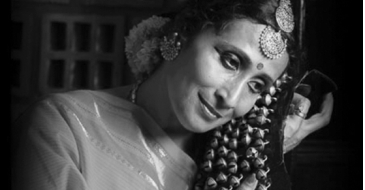
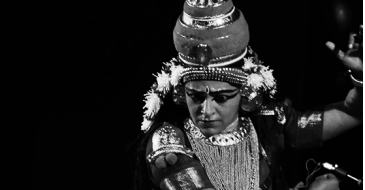
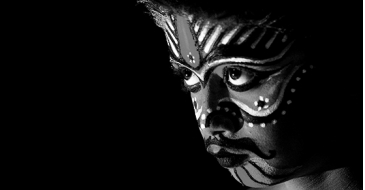
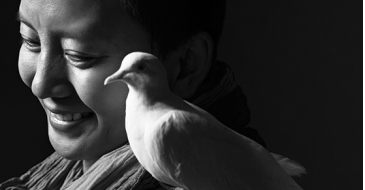
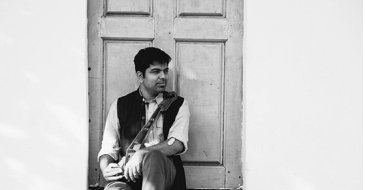
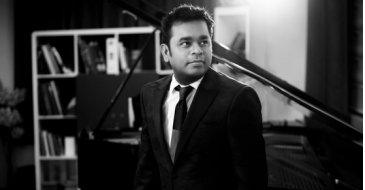
Abdullah faiz
May 19, 2017
Anjum
May 17, 2017
Bala
May 17, 2017